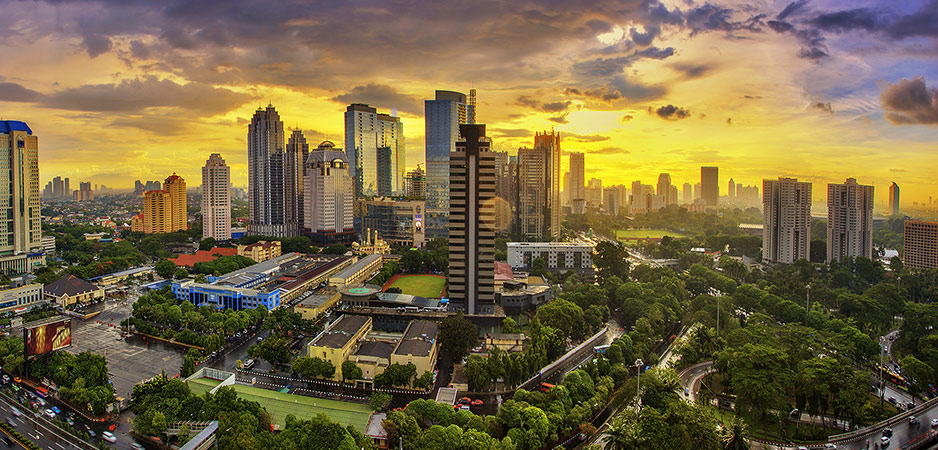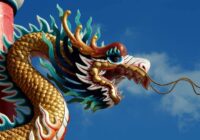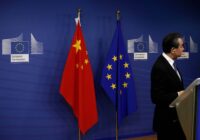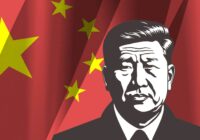On July 1, the Chinese Communist Party (CCP) celebrated its 100th anniversary. During his commemorative speech at Tiananmen Square, President Xi Jinping claimed that China has never oppressed the people of any other country. Xi is clearly ignoring China’s treatment of Taiwan. Since 2016, relations between China and Taiwan have worsened. Taiwan’s Democratic Progressive Party (DPP) won both the presidential and legislative elections in 2016, displacing the Kuomintang (KMT) as Taiwanese voters became skeptical of the KMT’s policy of engaging with China.
Does the World Need to Contain China?
Since becoming president, DPP leader Tsai Ing-wen has challenged Beijing’s “one-China policy.” In 2020, she declared that Taiwan could not accept reunification with China under its “one country, two systems” offer of autonomy. Taiwan’s first female president said that “Both sides have a duty to find a way to coexist over the long term and prevent the intensification of antagonism and differences,” pouring cold water over Beijing’s long-cherished hopes of reunification.
Chinese Aggression, Taiwanese Response
China has responded aggressively to Taiwan’s position. In a recent article, Lee Hsi-min, a retired Taiwanese admiral, and Eric Lee, an Indo-Pacific security analyst, point out that the CCP “is already taking action against Taiwan.” For years, China has undertaken incremental military measures against its tiny neighbor. Beijing has been careful not to cross the threshold of armed conflict, but its sub-conflict operations have been relentless.
These operations have come to be known as gray zone aggression. They involve airspace incursions, coastal violations, cyberattacks and disinformation campaigns. A recent report by the Center for Strategic and International Studies found that Chinese aircraft had entered Taiwan’s airspace 20 times in the first eight months of 2020. The Chinese People’s Liberation Army (PLA) has stepped up its air and naval operations. Fighter and bomber aircraft frequently circumnavigate Taiwan as a show of force. Chinese aircraft carriers have been on military exercises and “routine” drills in waters near Taiwan.
This is part of China’s increased aggression in its neighborhood since Xi took charge of the CCP, with Beijing doing all it can to undermine Taiwan’s institutions, demoralize its society and undermine popular support for a democratically elected government. However, Taiwan has responded robustly to this aggression. In April, the Taiwanese foreign minister vowed that his country would defend itself to “the very last day.” Taiwan is spending more on defense, strengthening military ties with allied powers and even preparing for a potential war to retain its independence.
Indonesia’s Balancing Act
As tensions rise between China and Taiwan, Indonesia has been forced into a delicate balancing act. China is Indonesia’s largest trading partner, a big source of investment and a supplier of COVID-19 vaccines. In 2019, bilateral trade reached $79.4 billion, rising tenfold since 2000. Indonesia has even started using Chinese currency for trade in a historic move away from the US dollar.
In 2020, Chinese foreign direct investment in Indonesia, including flows from Hong Kong, reached $8.4 billion, rising by 11% in a year. A 142-kilometer Indonesian rail project is part of China’s Belt and Road Initiative and is expected to cost $4.57 billion. In April, Xi met Indonesian President Joko Widodo and promised to boost Chinese investment further. Xi said the two countries should increase infrastructure projects such as the high-speed rail link between the capital Jakarta and Bandung, a major Indonesian city.
Before the pandemic, 2 million Chinese tourists visited Indonesia every year. Jakarta’s nationwide vaccination campaign is using China’s Sinovac COVID-19 vaccine. (So far, the West has failed to provide Indonesia with vaccines.) Derek Grossman, a senior analyst at the RAND Corporation, has argued that Indonesia is quietly warming up to China.
Even as Indonesia develops closer ties with China, it is also deepening its relationship with Taipei. Taiwan’s track record in tackling the COVID-19 pandemic has been spectacularly successful, and Taipei has donated 200 oxygen concentrators to Jakarta. Even though it has been criticized for the recent rise in cases, Taiwan is still a role model for a country like Indonesia, which needs all the help it can get.
Like the US, the UK and many other countries, Indonesia does not recognize Taiwan’s independence. However, trade between the two countries is rising. In 2019, Taiwanese investment in Indonesia crossed $400 million. The previous year, trade between the two countries surpassed $8 billion, growing by 15.7% in a year. President Tsai’s “new southbound policy” is starting to yield results.
Indonesia has to be careful in handling its relationship with both China and Taiwan. Recently, Japan’s deputy defense minister suggested that Taiwan “as a democratic country” should be protected from China. The statement triggered fierce condemnation from Beijing. Jakarta should to avoid any pronouncement that may upset Beijing, Taipei or even Washington. Indonesia needs economic growth, increased investment and collaboration with all major powers.
The views expressed in this article are the author’s own and do not necessarily reflect Fair Observer’s editorial policy.
Support Fair Observer
We rely on your support for our independence, diversity and quality.
For more than 10 years, Fair Observer has been free, fair and independent. No billionaire owns us, no advertisers control us. We are a reader-supported nonprofit. Unlike many other publications, we keep our content free for readers regardless of where they live or whether they can afford to pay. We have no paywalls and no ads.
In the post-truth era of fake news, echo chambers and filter bubbles, we publish a plurality of perspectives from around the world. Anyone can publish with us, but everyone goes through a rigorous editorial process. So, you get fact-checked, well-reasoned content instead of noise.
We publish 2,500+ voices from 90+ countries. We also conduct education and training programs
on subjects ranging from digital media and journalism to writing and critical thinking. This
doesn’t come cheap. Servers, editors, trainers and web developers cost
money.
Please consider supporting us on a regular basis as a recurring donor or a
sustaining member.
Will you support FO’s journalism?
We rely on your support for our independence, diversity and quality.






